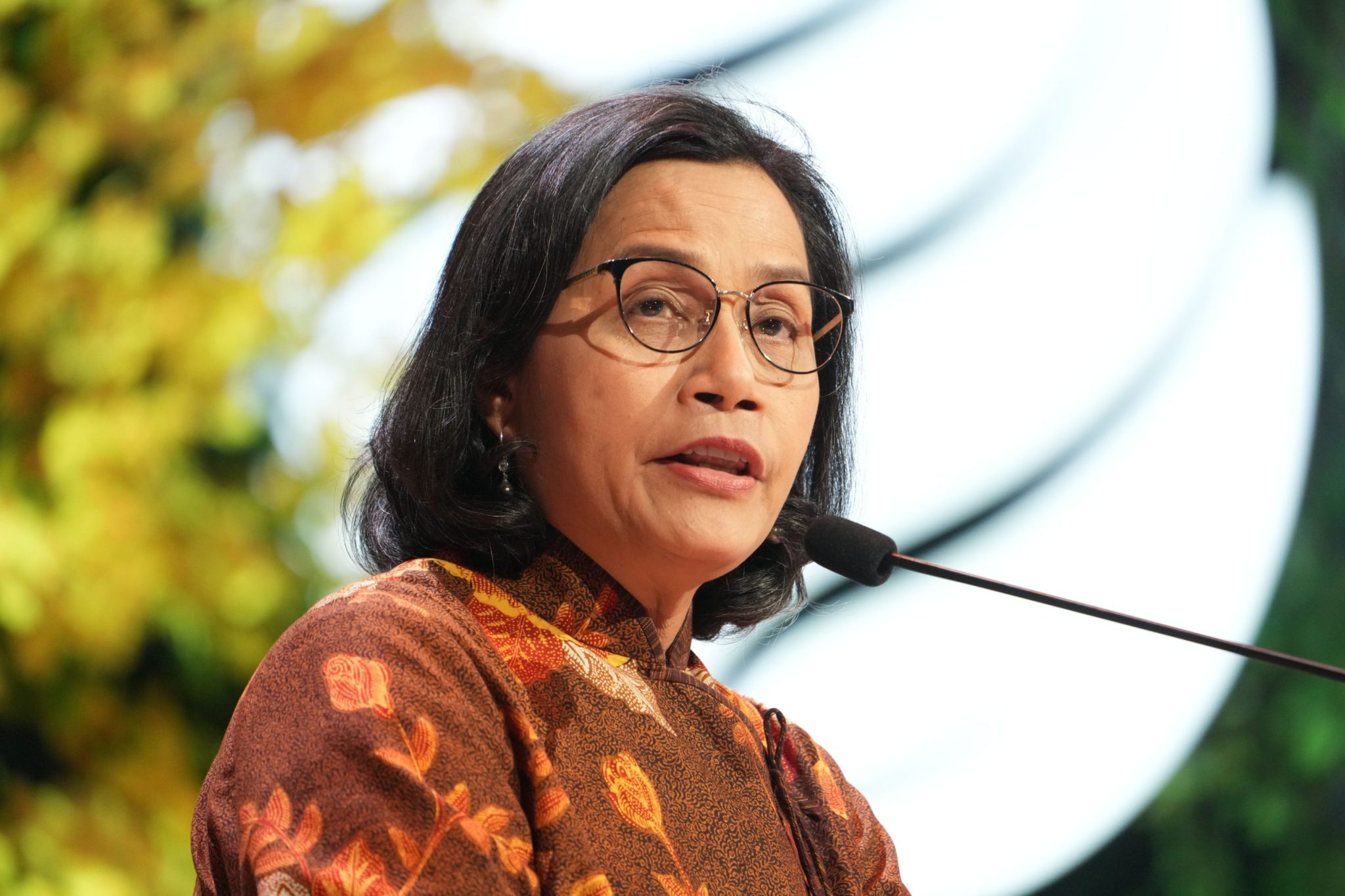
Indonesian President Prabowo Subianto abruptly replaced Sri Mulyani Indrawati as finance minister, risking renewed financial turmoil for Southeast Asia’s biggest economy following violent protests in recent weeks against his administration.
Purbaya Yudhi Sadewa, who has served as chairman of the Deposit Insurance Corporation since 2020, was sworn in as finance minister at a hastily-arranged ceremony late Monday. He said he is “a market person” who will keep Indonesia fiscally healthy.
Prabowo gave no explanation for his move, and an expected official handover event between Indrawati and Purbaya on Monday evening at the finance ministry did not eventuate.
Rumors earlier in the day that Prabowo could replace Indrawati saw the benchmark stock index pare early gains to close 1.3% lower ahead of the announcement. The offshore rupiah slid after the news, with one-month non-deliverable forwards declining 1.1% to 16,583 per dollar, the weakest since May.
Prabowo had clashed with Indrawati previously over their approaches to the budget—she focusing on restraint, he on loosening the purse strings. She’d also become a target of recent protests over the cost of living and fresh perks for lawmakers, unrest that Prabowo is keen to defuse.
Still, Indrawati has enjoyed widespread respect among international investors, not least for keeping the deficit below the legal limit of 3% of gross domestic product. Her departure means Prabowo, who is pushing high-cost, populist programs like free meals for schools, may have more room to spend. She has not commented publicly so far on her removal.
“There’s definitely a risk of capital flight now as international investors will be spooked in terms of what the fiscal outlook now looks like,” said Michael Brown, senior research strategist at Pepperstone Research in London.
Indrawati’s exit comes after a series of finance-related appointments extending the president’s influence, including new heads for the tax and customs offices. His nephew, Thomas Djiwandono, is a deputy finance minister.
Indrawati, 63, led the finance ministry for nearly 14 of the last 20 years, providing a level of fiscal credibility for three presidents and helping the nation secure investment-grade credit ratings. The former World Bank executive was first appointed by former President Susilo Bambang Yudhoyono in 2005, then by President Joko Widodo in 2016.
Tensions between Indrawati and Prabowo predated the current administration: When Prabowo was defense minister he pushed for increased defense spending while Indrawati prioritized fiscal discipline. And while he retained her as finance minister last October after his election win, there were soon signs of disquiet.
An apparent last-minute intervention by Prabowo saw the government scale back its planned increase in the value-added tax rate just hours before it was set to take effect on January 1. Rumors in March that Indrawati might depart sent markets tumbling, forcing the government to issue a denial.
Things seemed to briefly improve, with the draft 2026 budget unveiled last month projecting both a lower deficit and higher growth.
But then speculation about Indrawati’s future resurfaced after her home was among those looted during the protests of late August. Hundreds of demonstrations took place across 35 provinces, leaving at least 10 dead and several government buildings and public facilities burned.
Protesters were galvanized by revelations of generous allowances for lawmakers at a time the cost of living is rising, with the demonstrations escalating after a delivery driver was hit and killed by an armored police vehicle. The changes to lawmaker allowances were rolled back as part of efforts to defuse the rallies.
“The finance minister was seen as the primary defender of Indonesia’s excellent debt profile,” said Charlie Robertson, head of macro strategy at FIM Partners in Dubai, suggesting that foreign investors may retain faith, but that local sentiment remains fragile. “The risk is that locals fret about higher debt, choose U.S. Treasuries over Indonesian bonds, and this puts pressure on the IDR.”
The new finance minister has served as a deputy at the Coordinating Ministry for Maritime Affairs and Investment. Purbaya was an economist in the early 2000s who worked at the Danareksa Research Institute and became president director of PT Danareksa Sekuritas.
In a briefing late Monday, Purbaya said he has extensive experience in markets, and in providing fiscal advice to the government. He added he will talk with Indrawati.
“Mulyani’s departure, though not unexpected after recent unrest, marks the end of an era of fiscal credibility,” said Mohit Mirpuri, a senior partner at SGMC Capital Pte.
But she has left “strong foundations,” he said, with Indonesia able to tap “experienced technocrats” like Purbaya. “Overall, the transition should be manageable, with policy continuity the key to restoring confidence.”
#Prabowo #removes #finance #chief #risking #turmoil #Indonesia